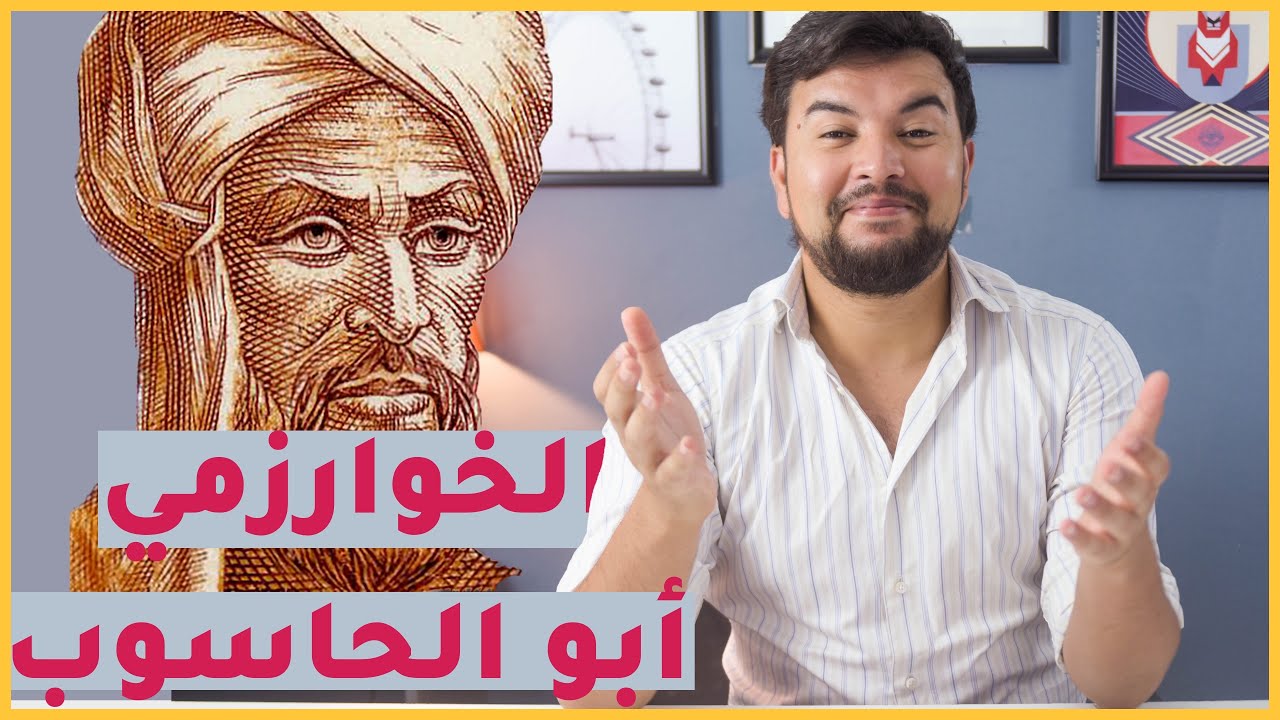Why algorithms are called algorithms | BBC Ideas
Summary
TLDRThe term 'algorithm' traces back 900 years to the Persian mathematician Muhammad ibn Musa al-Khwarizmi, whose influential book introduced Hindu-Arabic numerals and the decimal system to the West. His work laid the foundation for modern mathematics and the concept of breaking down complex problems into simpler parts. The evolution of the word 'algorithm' from 'algorismus' signifies its transition to a set of step-by-step rules for problem-solving. Pioneered by Alan Turing, algorithms now permeate our lives, from navigation to internet searches and predicting behaviors, showcasing their transformative impact on society.
Takeaways
- 📚 The term 'algorithm' has a historical origin, dating back around 900 years to the Persian mathematician Muhammad ibn Musa al-Khwarizmi.
- 🌟 Al-Khwarizmi was a director at the House of Wisdom, an intellectual center in 9th Century Baghdad, and contributed significantly to various fields including mathematics and astronomy.
- 📖 His influential book, 'Concerning the Hindu Art of Reckoning,' introduced Hindu-Arabic numerals to the West, which later replaced the Roman numeral system.
- 🔢 Al-Khwarizmi is credited with the concepts of the Hindu-Arabic number system and the decimal point, as described in his book.
- 🌐 The word 'algorithm' itself is derived from the Latinized version of al-Khwarizmi's name, 'algorismi', which was used in the title of his book.
- 📚 We also owe the word 'algebra' to al-Khwarizmi, which comes from another one of his works.
- 🔡 In medieval Latin, 'algorismus' referred to the decimal number system, and by the 13th Century, it had become an English word.
- 🕰 It wasn't until the late 19th Century that 'algorithm' began to mean a set of step-by-step rules for solving problems.
- 💡 Alan Turing, in the early 20th Century, conceptualized how a machine could follow algorithmic instructions, marking the birth of the computer age.
- 🔒 Turing's work during World War Two, specifically the creation of the Bombe machine, demonstrated the practical application of algorithms in code-breaking.
- 🌐 Today, algorithms are ubiquitous, playing a role in navigation, internet searches, recommendations, and even predicting human behavior.
Q & A
What is the origin of the term 'algorithm'?
-The term 'algorithm' originates from the name of the Persian mathematician, Muhammad ibn Musa al-Khwarizmi, whose Latinized name in the title of his book became 'algorismi', which eventually evolved into 'algorithm'.
Where was Muhammad ibn Musa al-Khwarizmi born?
-Muhammad ibn Musa al-Khwarizmi was born around 780 AD in a region now known as Uzbekistan.
What significant contributions did al-Khwarizmi make to various fields?
-Al-Khwarizmi made innovative contributions to mathematics, astronomy, geography, and cartography.
What was the name of the intellectual center where al-Khwarizmi worked?
-Al-Khwarizmi was the director in the House of Wisdom, an intellectual center for scholars in 9th Century Baghdad.
What is the title of the influential book written by al-Khwarizmi?
-Al-Khwarizmi wrote an influential book called 'Concerning the Hindu Art of Reckoning'.
How did al-Khwarizmi's work influence the Western world?
-His book introduced Hindu-Arabic numerals to the West, which eventually replaced the Roman numerals. His work also led to the development of the word 'algebra'.
What is the significance of the Hindu-Arabic numeral system and the decimal point in the world today?
-The Hindu-Arabic numeral system and the decimal point, both described by al-Khwarizmi, form the basis of the numbers used throughout the world today.
When did the term 'algorithm' start to mean a set of step-by-step rules for solving a problem?
-The term 'algorithm' started to mean a set of step-by-step rules for solving a problem in the late 19th Century.
Who is credited with the theoretical development of how a machine could follow algorithmic instructions?
-Alan Turing, the British mathematician and computer scientist, is credited with working out how a machine could follow algorithmic instructions in theory.
What was the significance of Alan Turing's machine called the Bombe during World War Two?
-The Bombe, built by Alan Turing, used algorithms to crack the Enigma code, playing a crucial role in World War Two.
How are algorithms utilized in today's society?
-Algorithms are now ubiquitous, helping with navigation, driving internet searches, making recommendations for purchases, and even predicting behaviors such as voting patterns and romantic interests.
Outlines

Этот раздел доступен только подписчикам платных тарифов. Пожалуйста, перейдите на платный тариф для доступа.
Перейти на платный тарифMindmap

Этот раздел доступен только подписчикам платных тарифов. Пожалуйста, перейдите на платный тариф для доступа.
Перейти на платный тарифKeywords

Этот раздел доступен только подписчикам платных тарифов. Пожалуйста, перейдите на платный тариф для доступа.
Перейти на платный тарифHighlights

Этот раздел доступен только подписчикам платных тарифов. Пожалуйста, перейдите на платный тариф для доступа.
Перейти на платный тарифTranscripts

Этот раздел доступен только подписчикам платных тарифов. Пожалуйста, перейдите на платный тариф для доступа.
Перейти на платный тарифПосмотреть больше похожих видео

Mengenal Al-Khawarizmi, Ilmuwan Muslim Jenius Penemu Aljabar - National Geographic Indonesia

Who is Al Khwarizmi? The Grandfather of Algorithms and Algebra | The House of Wisdom | E1

The Origin of Numbers

الخوارزمي : أبو الحِساب وجدُّ الحاسوب ! 🧮

SEJARAH PERKEMBANGAN ANGKA

कैसे गुरुकुलों ने बनाया India को Superpower! | Gurukul History, Syllabus, and Routine | EP-29
5.0 / 5 (0 votes)
